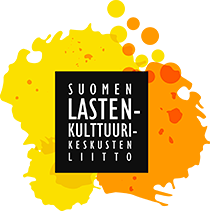Goods and sustainability
The documentary “My Stuff” challenges the concepts of sustainability, basic needs and different meanings of commodities and goods. Modern society is abundant of goods and stuff, but what do you really need to meet the basic needs? Immediate basic needs could mean for example food, clean air and water. After meeting these immediate needs our other needs can be met, like health, wellbeing, human relations and self-actualization. However, goods are not acquired, used and disposed of households only to meet the basic needs, but are used to build up identity, to maintain relationships and to have an influence on surrounding society. Therefore goods are used not only to meet the needs but also to fulfill desires. It stands to reason when thinking about personal activity to evaluate what you really need and on the other hand what your desires are.
Sustainable consumption is based on a lifestyle where the decisions are guided by consciousness and responsibility of own actions as well as a positive attitude towards future. Sustainable consumption can be divided into four categories: ecological, economical, social and cultural. These concepts are based on the work of Brundtland’s committee: Teaching Consumer Competences – a Strategy for Consumer Education
A sustainably conscious consumer uses all resources, money, natural recourses and time, in a sustainable and economical way.
Ecologically sustainable consumption is in harmony with the principles of preserving natural resources and processes as well as ensuring natural diversity (biodiversity). Individual consumer can for example recycle and use public transport. In national and international levels the measures to enhance sustainable use of natural resources are emphasized. Economical sustainability refers to economically effective and just development. Economically sustainable practice is seen in every day life as a consumption according to personal wealth. Abstention from buying is also sustainable behavior from economical and ecological point of view. Economical and ecological sustainability actually interplay and do not exclude each other. Social sustainability includes developing individual life management and social identity. Cultural sustainability demands for a development in accordance with culture and values. When thinking about cultural and social sustainability we can question for example the necessity of mobile phones; is a mobile phone in modern society a must? Do we really have to be available all the time? Individual choices and using habits of technology are also creating culture and have an effect on technology practices and habit forming. Every consumer contributes to our perception of adequate and normal consumption by making choices and forming consuming habits in our culture.
The classification can be supplemented by taking into account the different levels of actions: the procedures of individual consumers and the social, national and global levels. Public debate often argues that national economy demands consumption to be able to function. In this context emphasized is however the responsibility and sustainability of actions through all levels. It could be suggested that the society should stimulate and encourage consumers to act in a sustainable way and on the other hand the individual consumer can make a difference in the society by own actions and choices.







